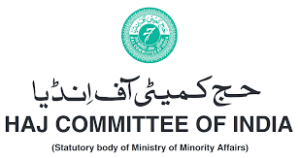Committee to review the existing Haj Policy of Indian Government for 2013-17 and to suggest framework for new Haj policy 2018-22, has presented its report to Union Ministry of Minority Affairs.
Background Information:
In order to improve Indian Government’s current Haj policy and also to look into issue of Haj subsidy in light of 2012 Supreme Court order on gradually reducing and abolishing it by 2022, Ministry of Minority Affairs had a formed this committee in February 2017.
- Afzal Amanullah, IAS (Retd.), former Secretary to Govt. of India and Ex Consul General of India, Jeddah was appointed as the convener of this committee and Alam, Joint Secretary, in-charge of Haj, Ministry of Minority Affairs was made the Member Secretary of the Committee.
- Other members included Justice S.S. Parkar, Retd. Judge of Bombay High Court, Qaiser Shamim, Former Chairman of Haj Committee of India and Kamal Faruqui, Noted Chartered Accountant.
Important Recommendations of Haj Policy Review Committee:
The committee has recommended distributing quota between Haj Committee of India (HCOI), and registered Private Tour Operators (PTOs) in the ratio of 70:30 for the next 5 years.
- Distribution of seats among the States/ Union Territories is to be done on basis of Muslim population as well as in proportion to the number of applications received.
- Special quota for Jammu & Kashmir is to be increased from 1500 to 2000.
- Reserved category of applicants which includes citizens of 70+ years of age and 4thtimers is to be abolished.
- Embarkation Points (congregation place from where all the Hajis start the journey) to be reduced from 21 to 9. The 9 embarkation Points which have been retained are (1) Delhi (2) Lucknow (3) Kolkata (4) Ahmedabad (5) Mumbai (6) Chennai (7) Hyderabad (8) Bengaluru and (9) Cochin.
- Saudi Government to be consulted regarding Haj travel by ship and thereafter exploring the scope of market for such travel.
- For Private Tour Operators (PTOs), the committee has recommended to develop a robust portal for processing applications.
Ministry of Minority Affairs will share the recommendations with concerned parties and the accepted recommendations will be implemented from 2018.





